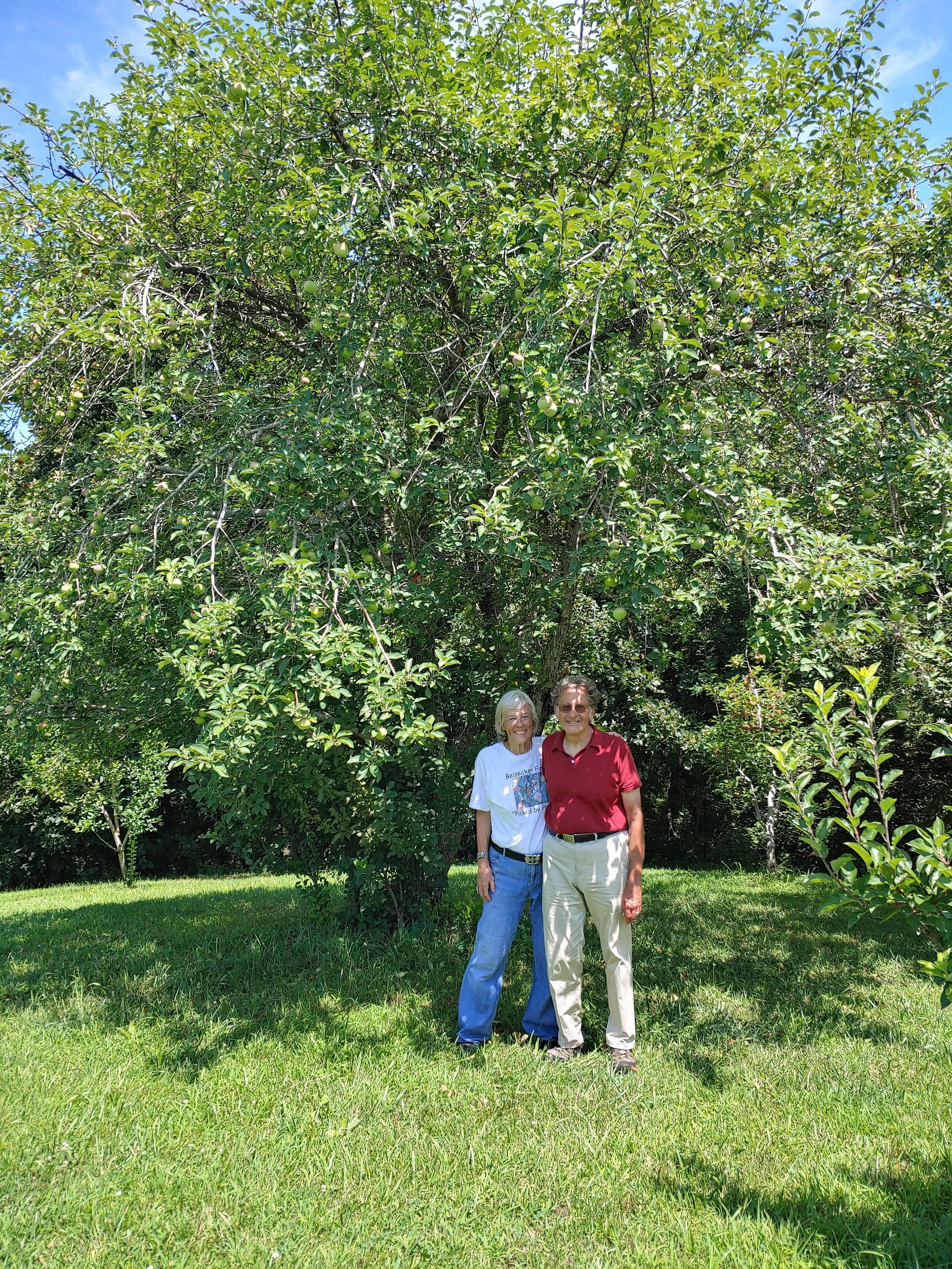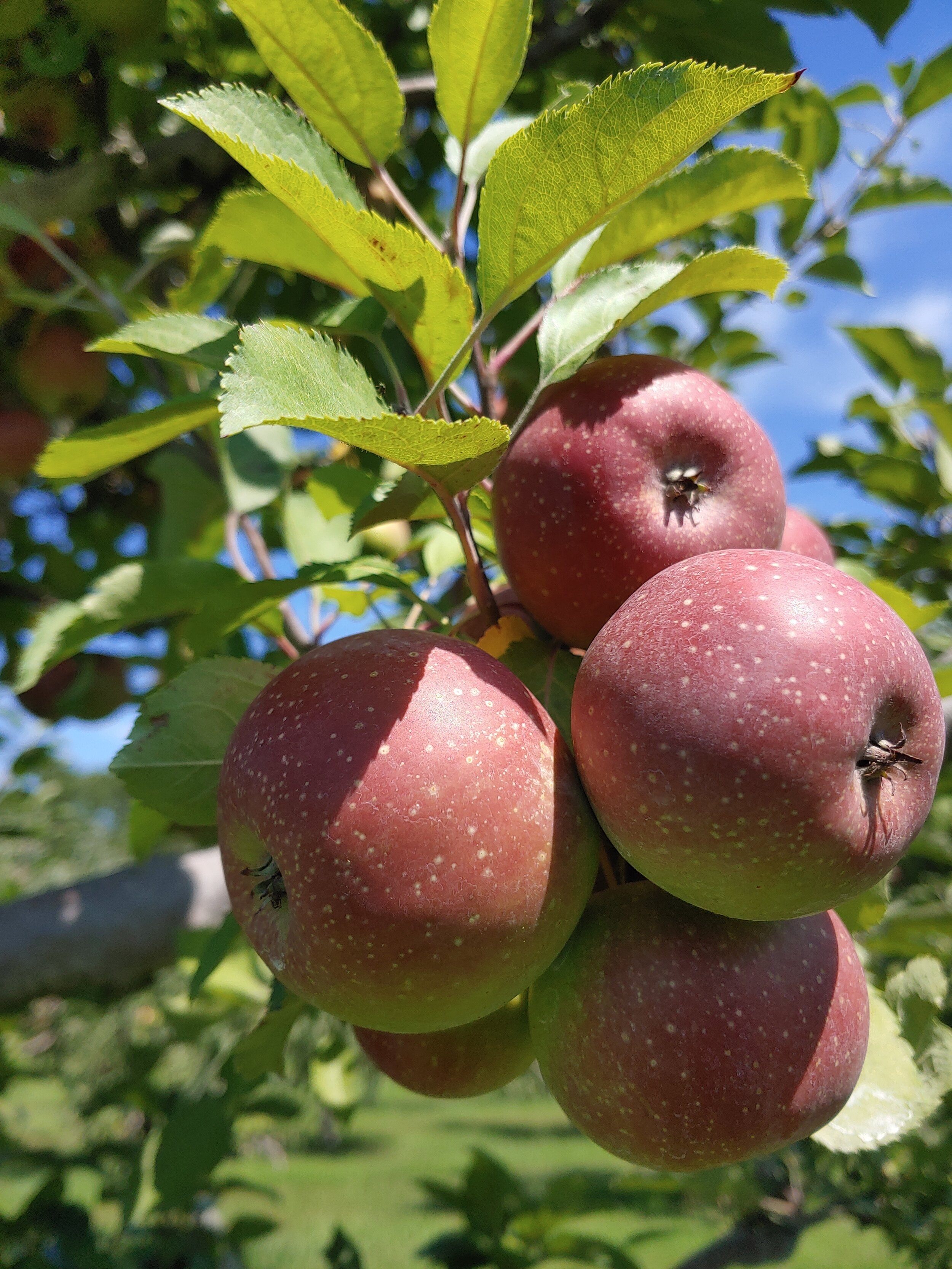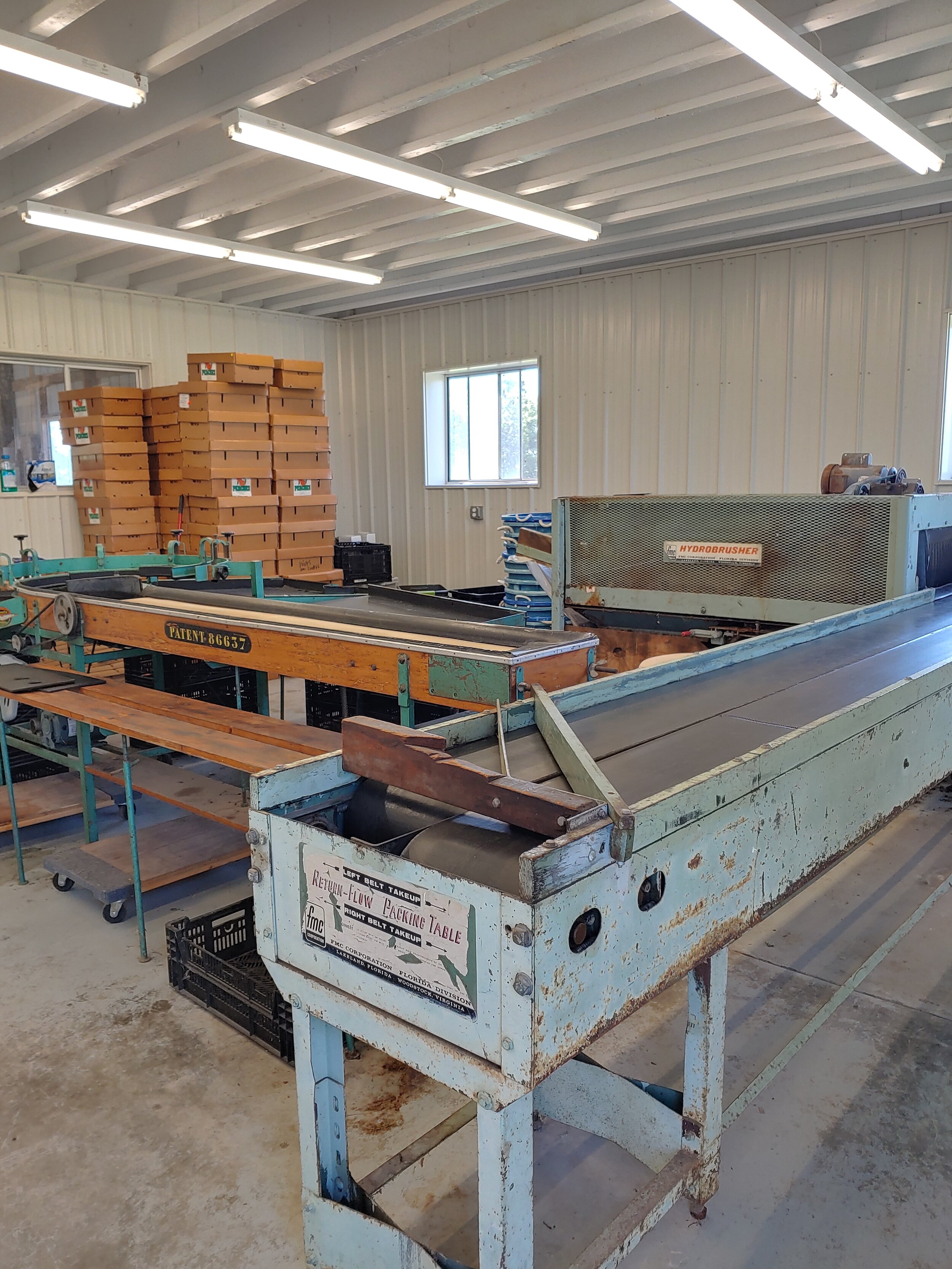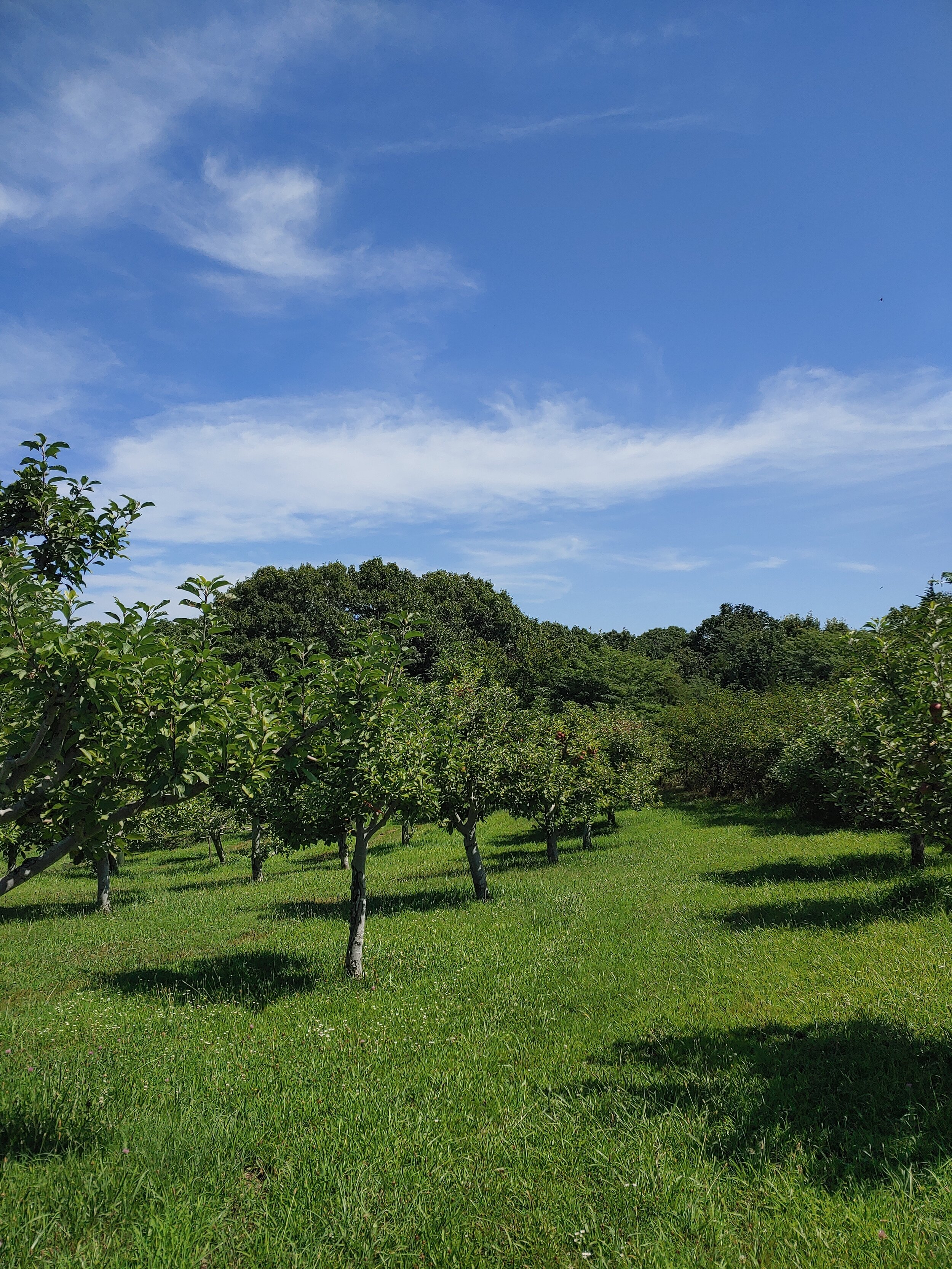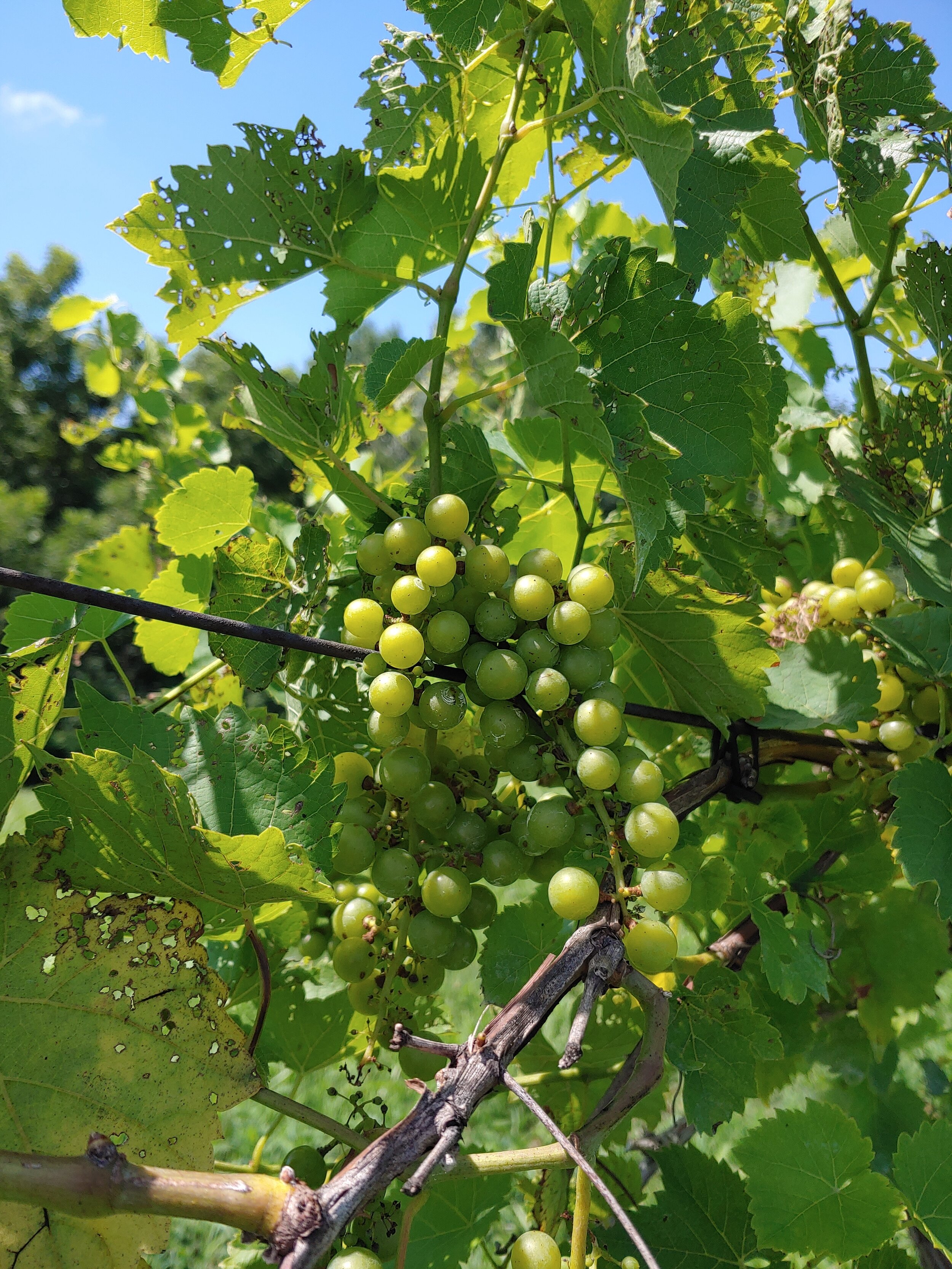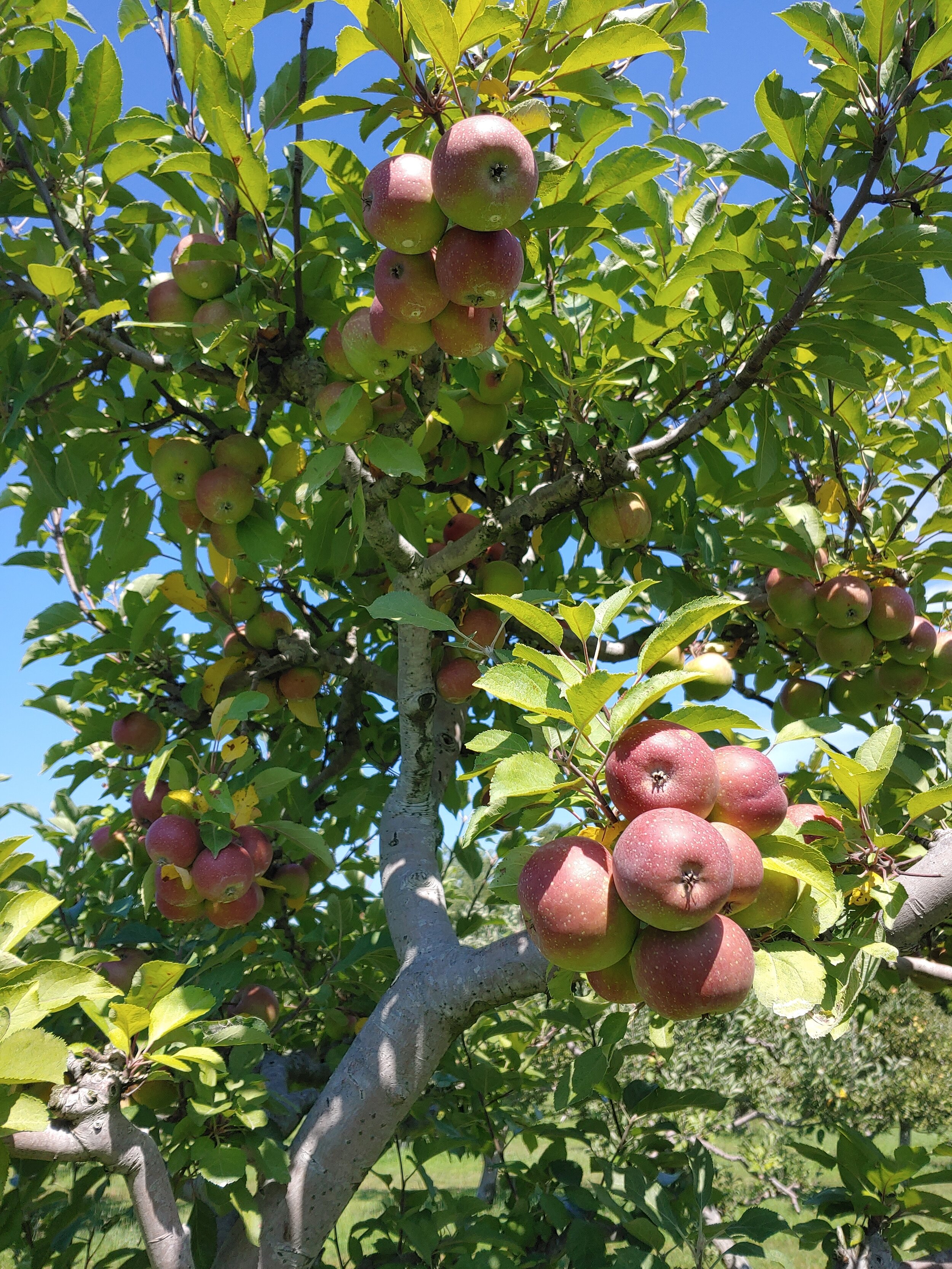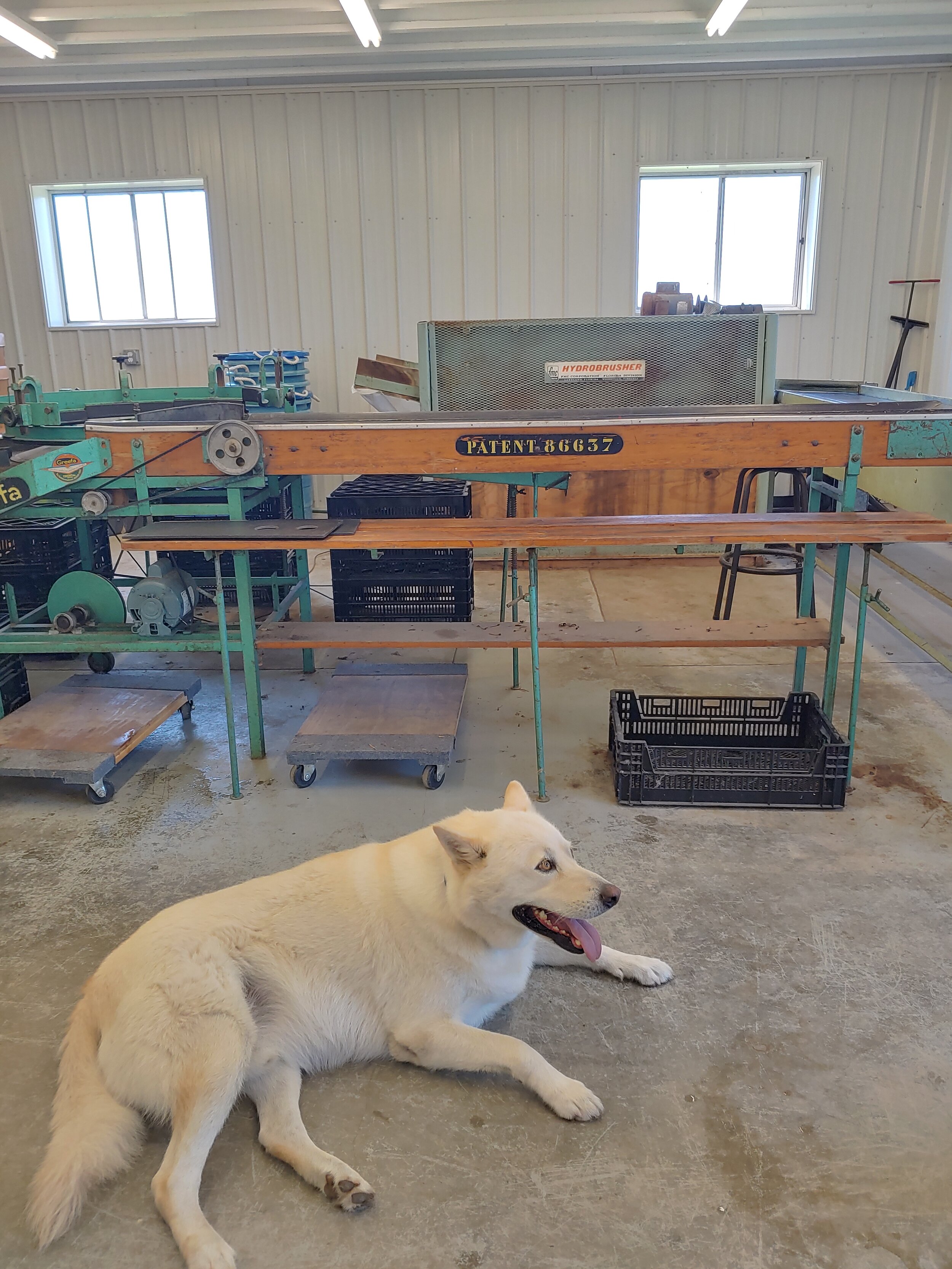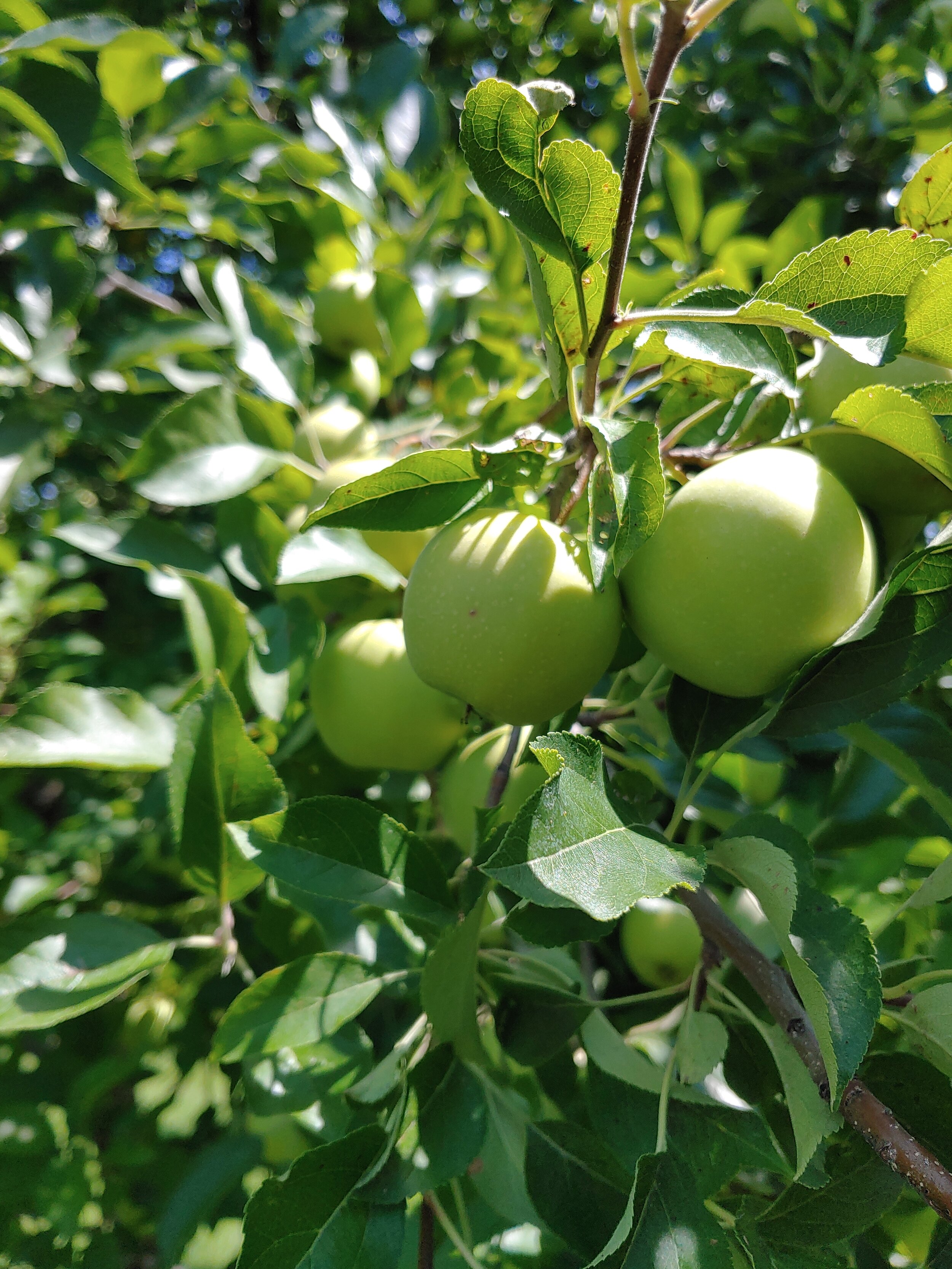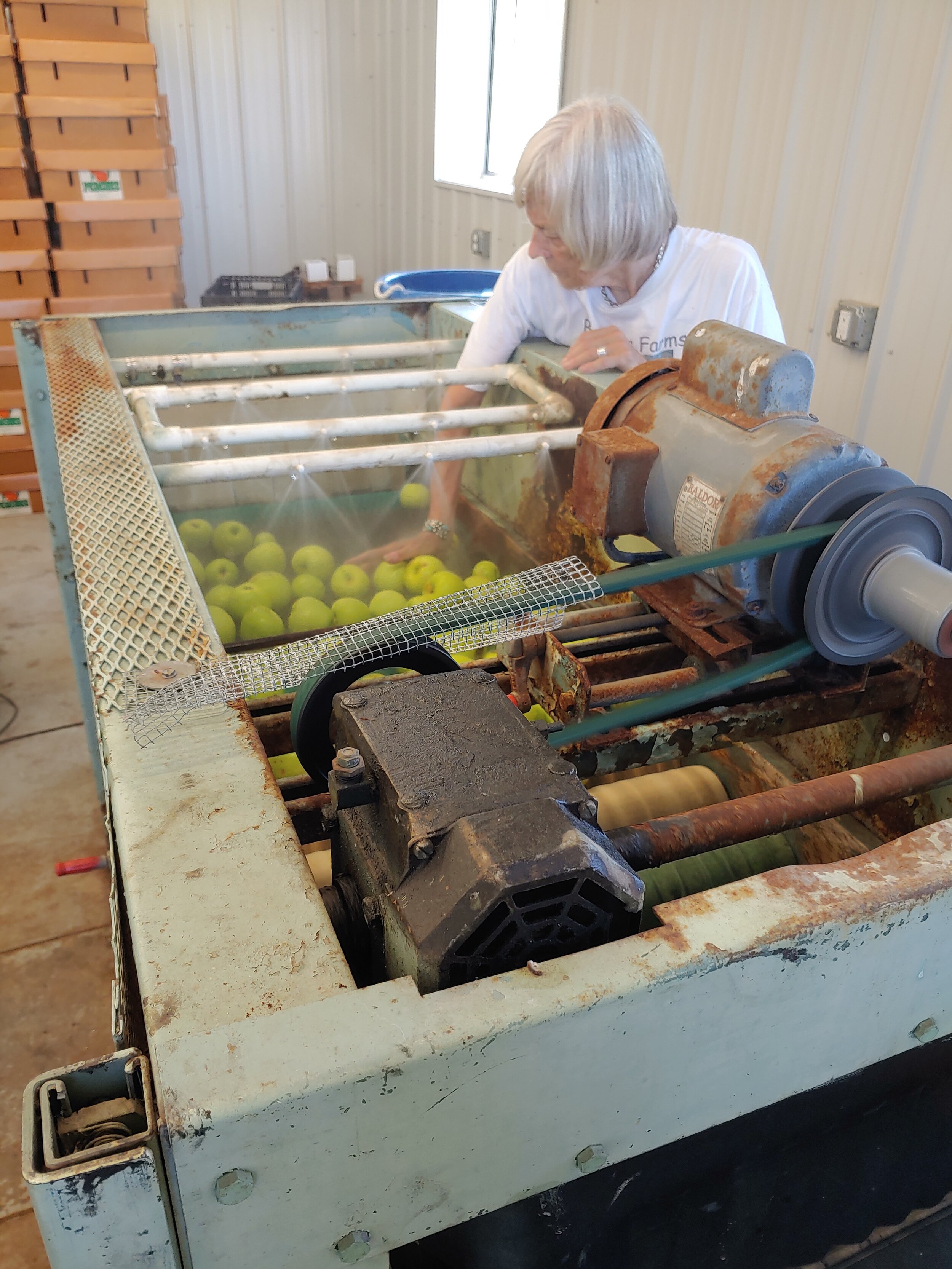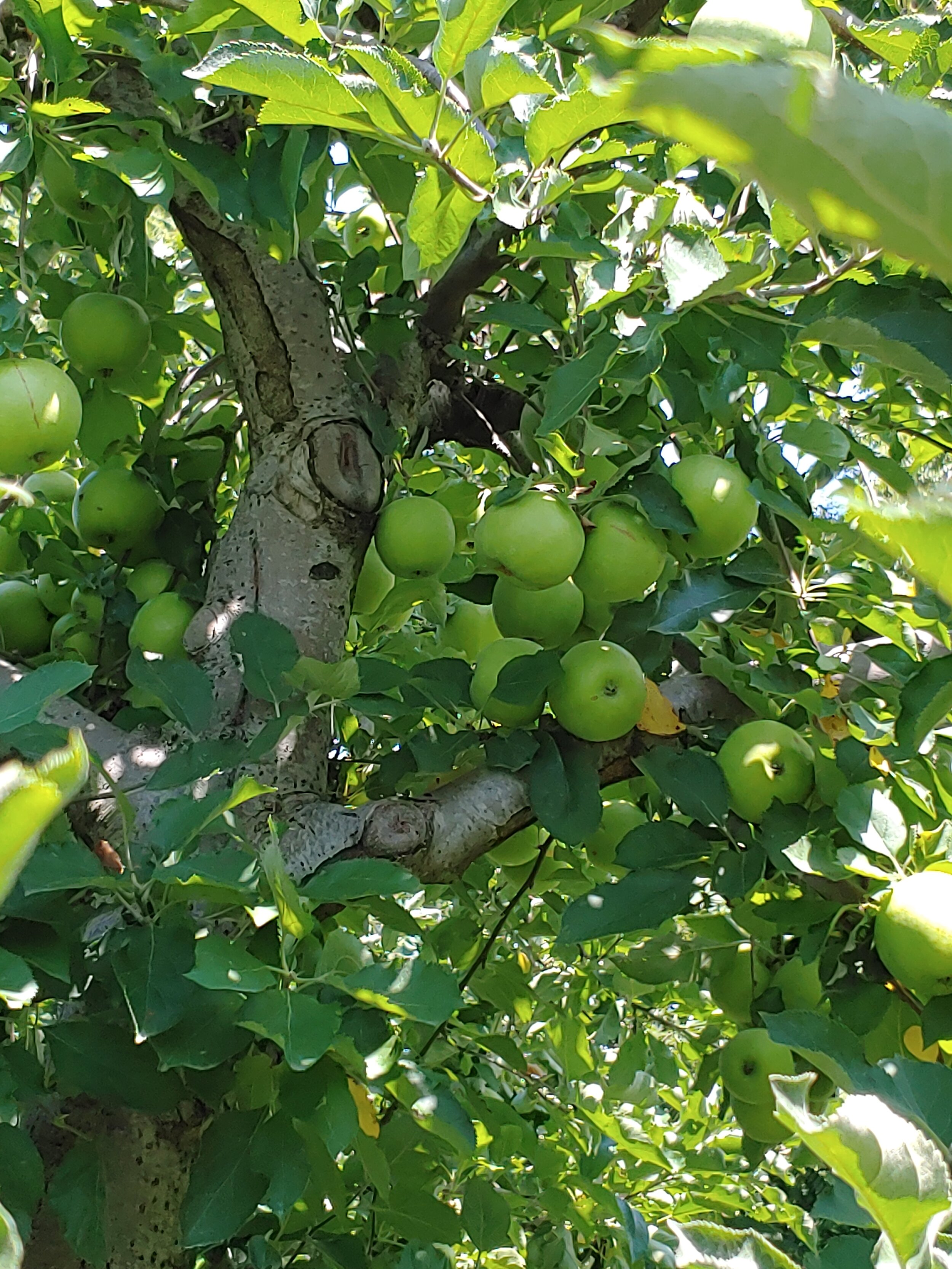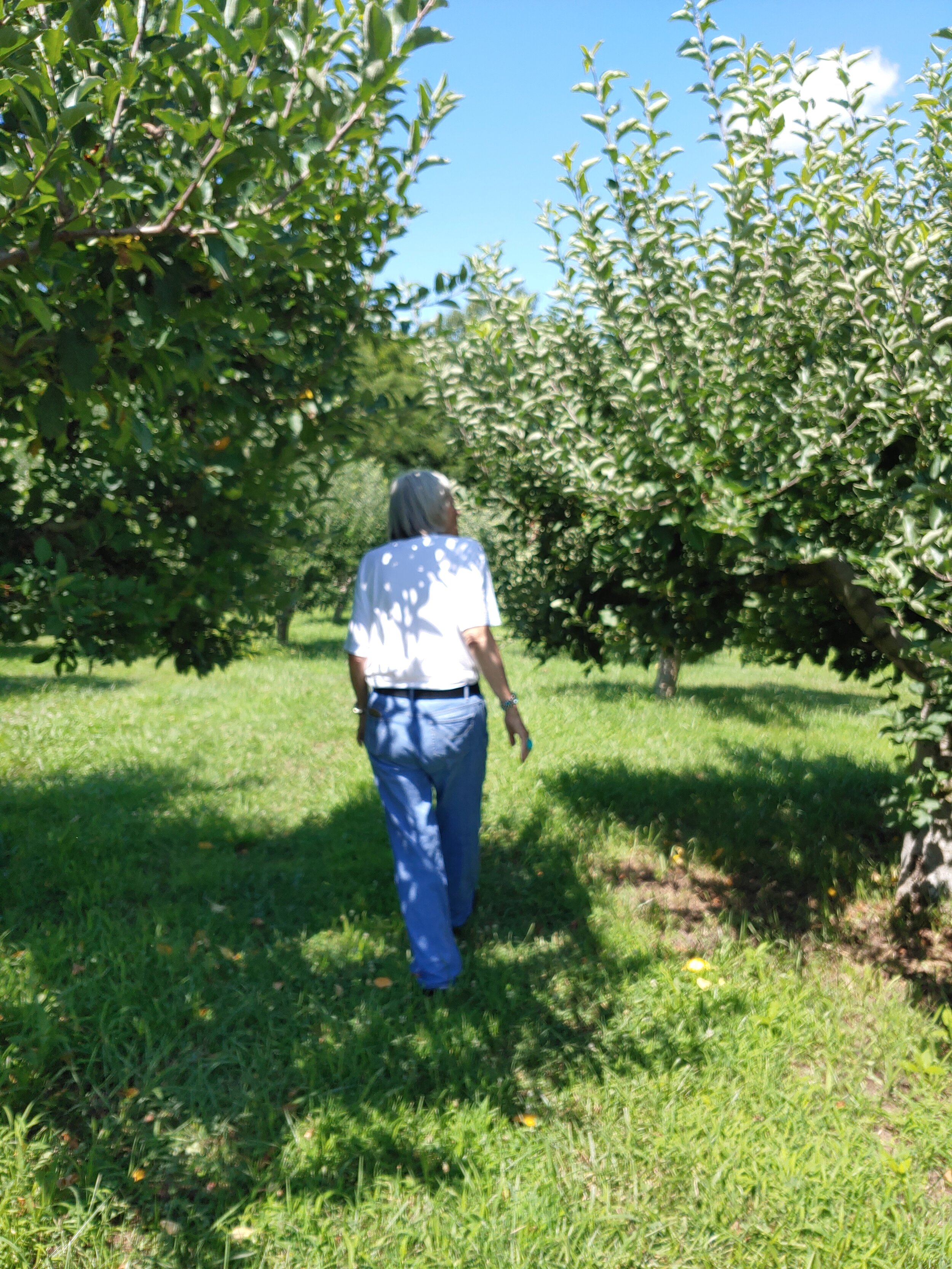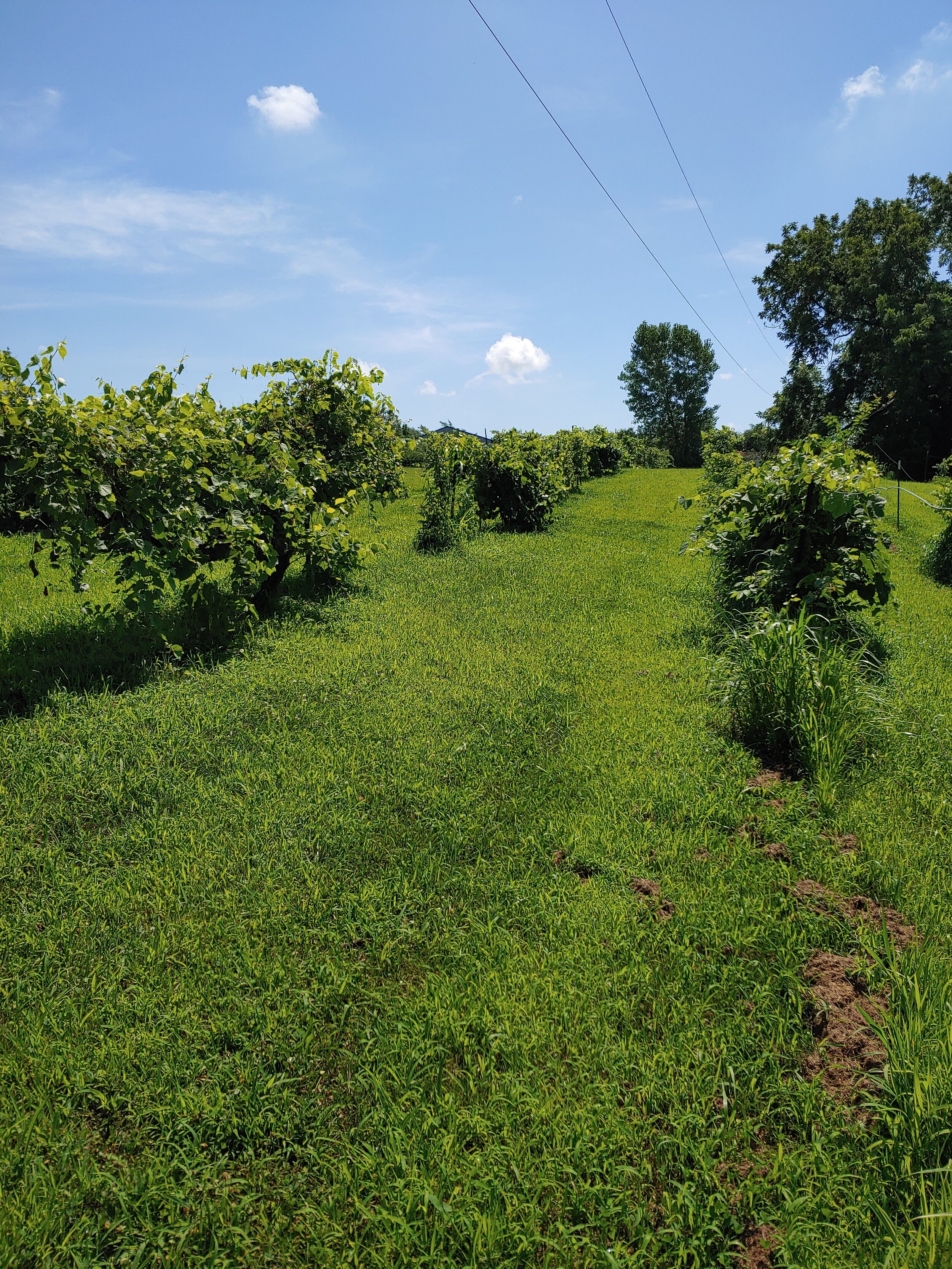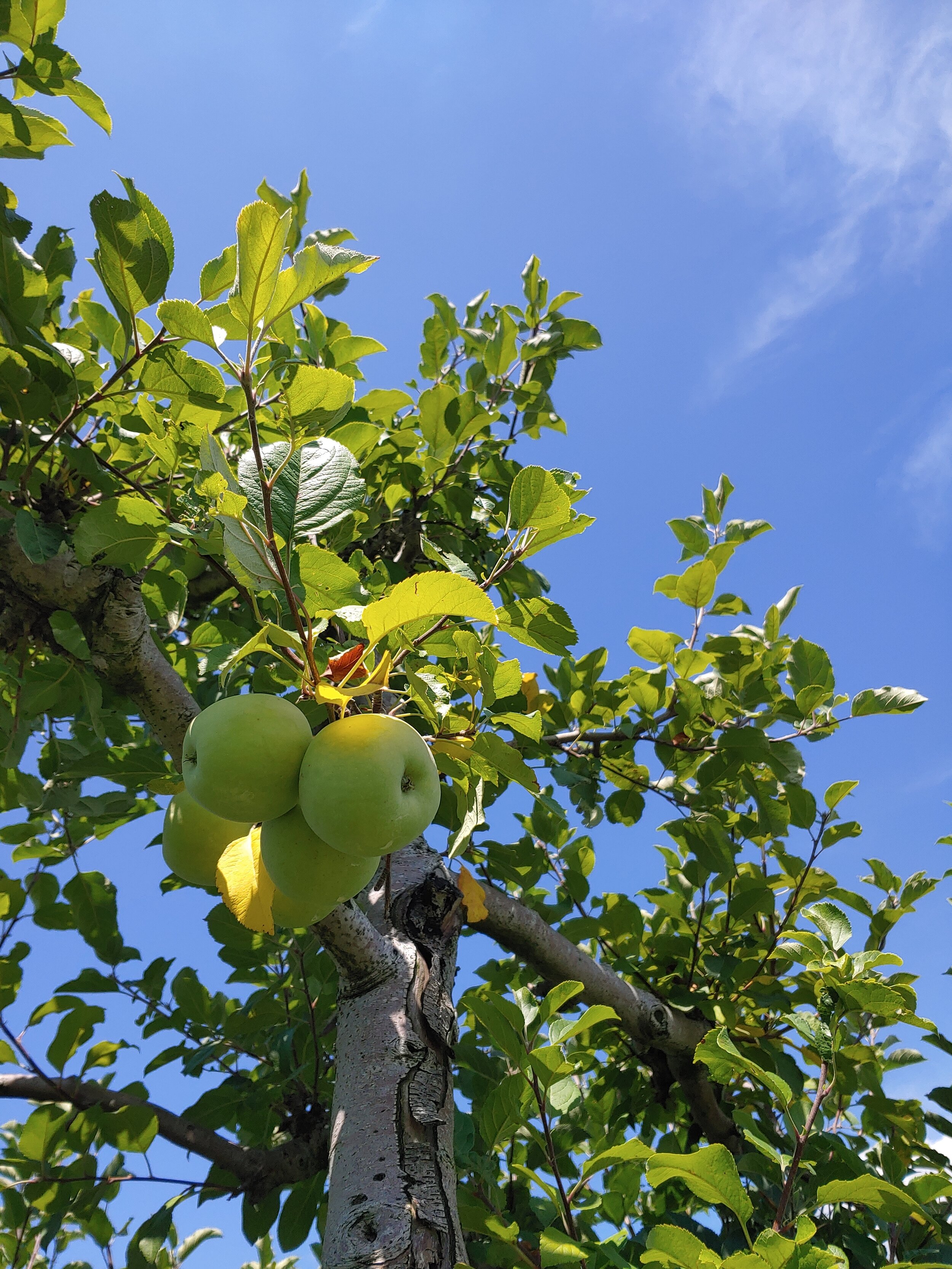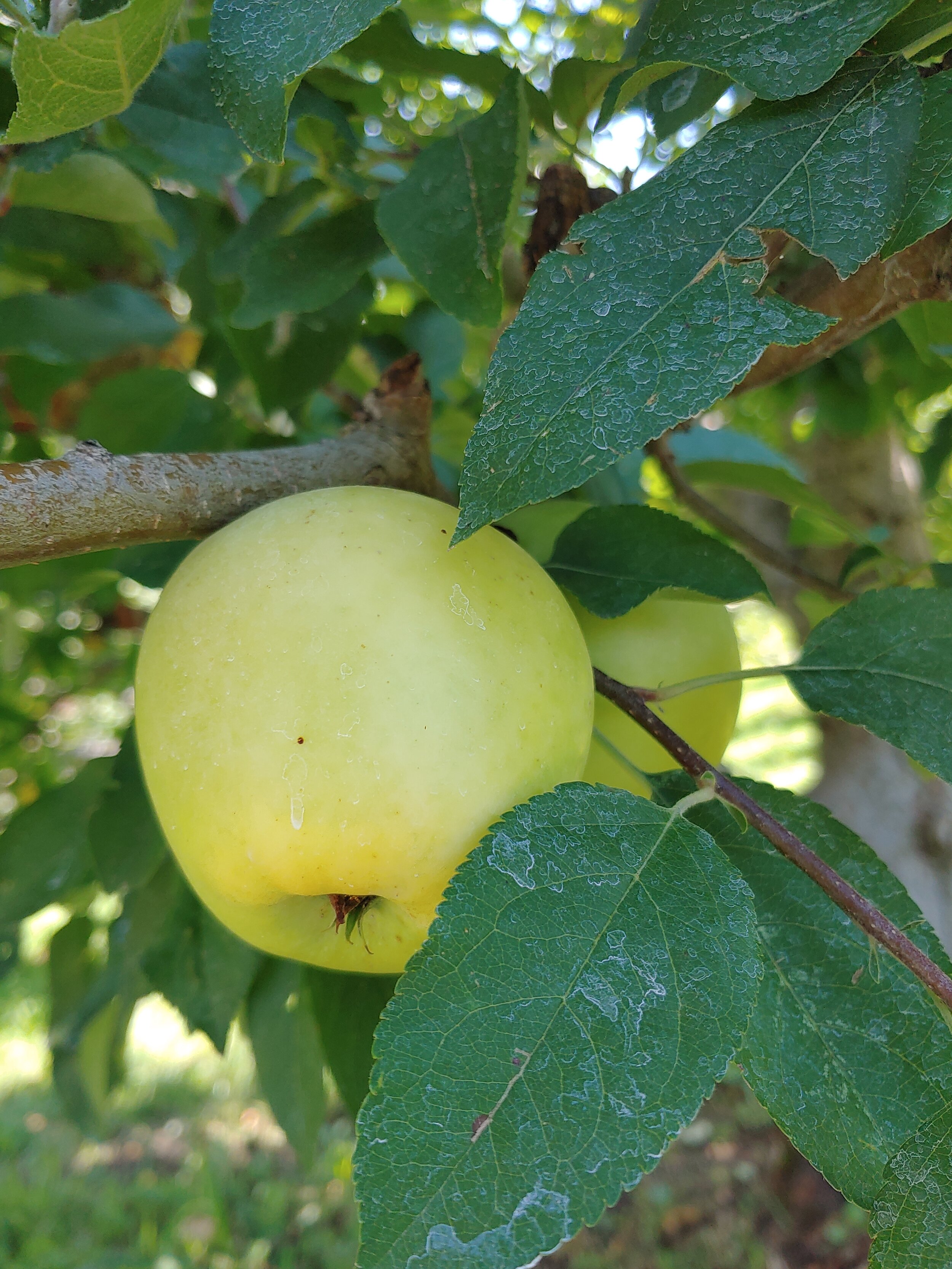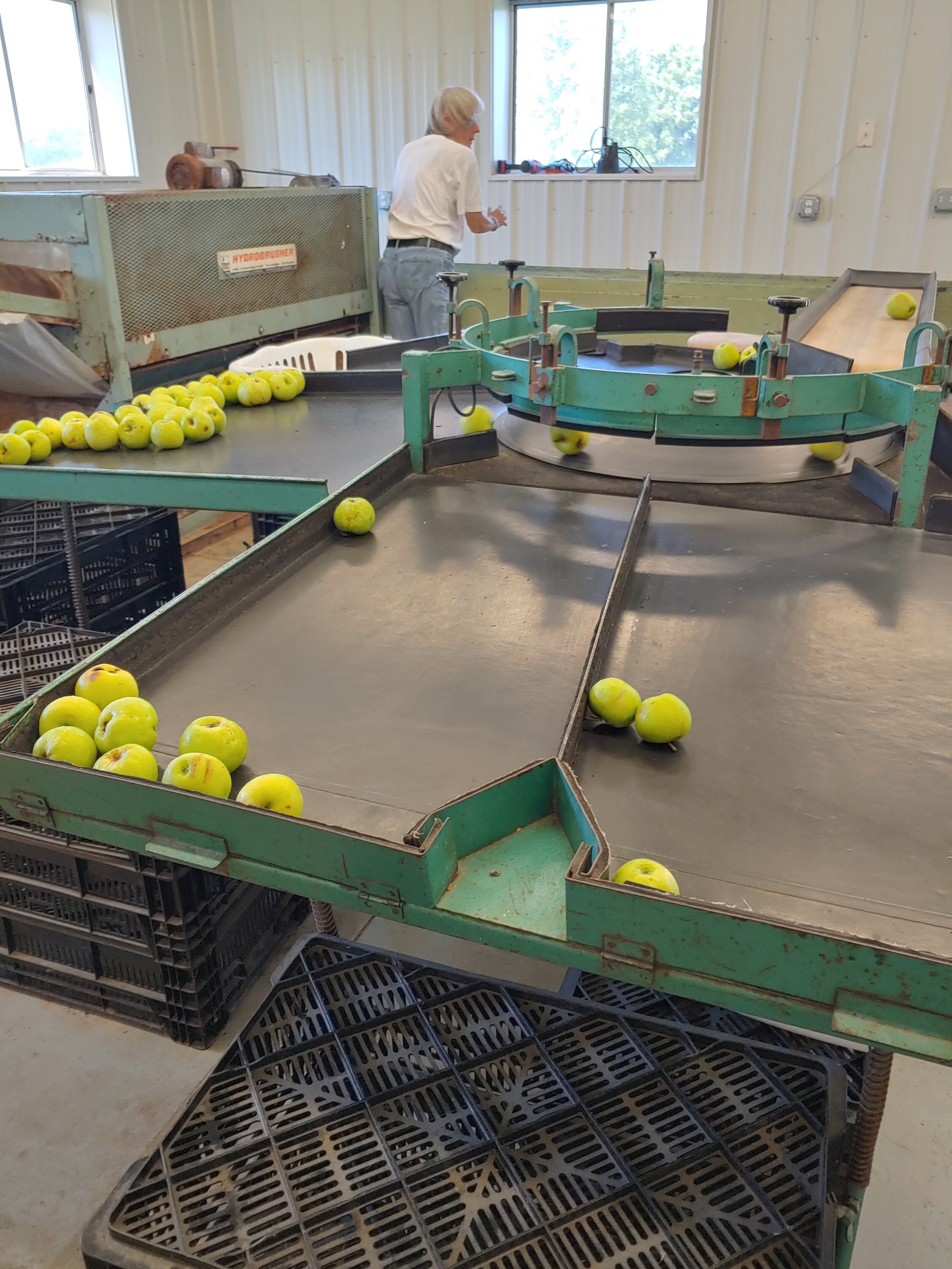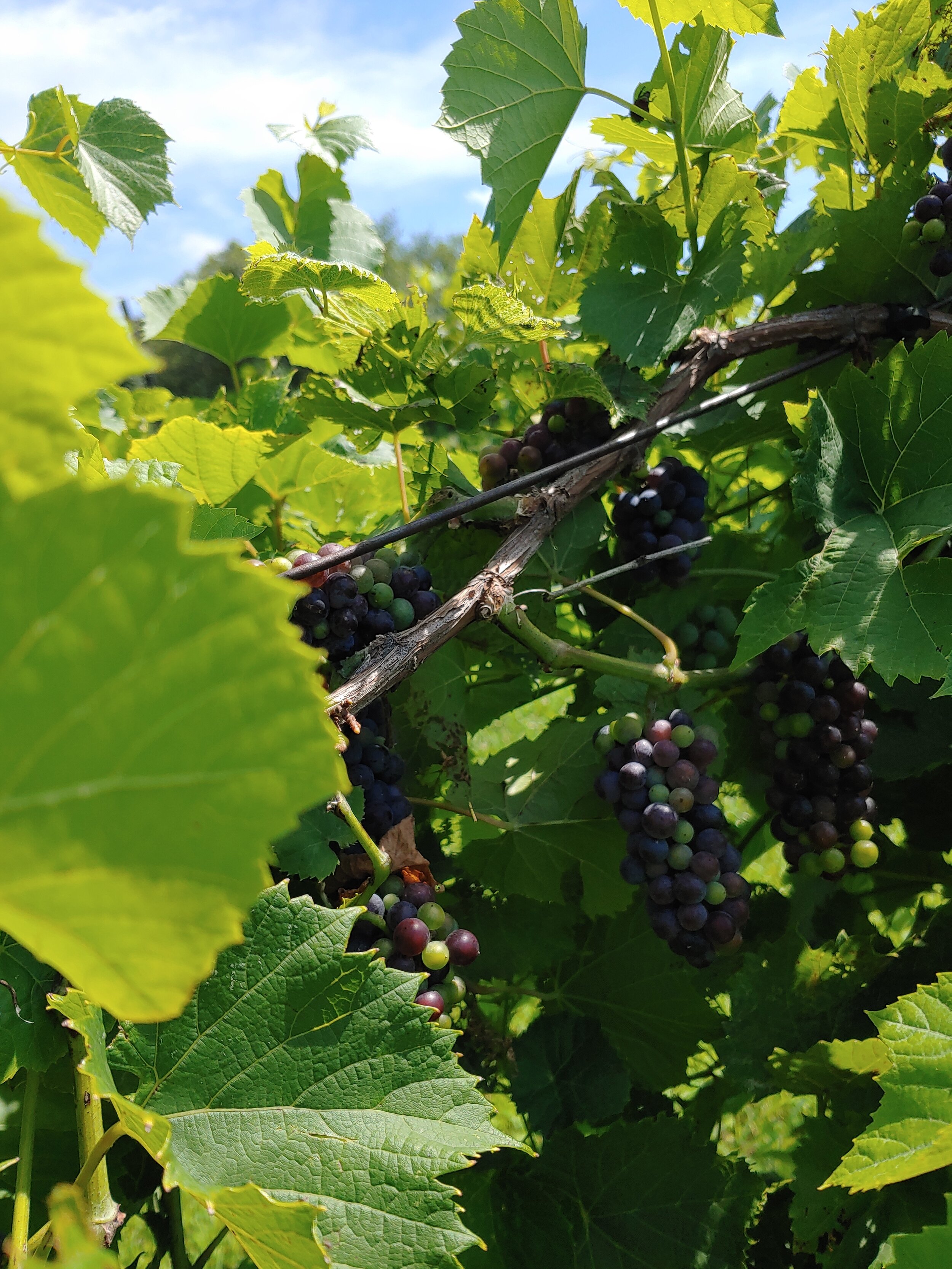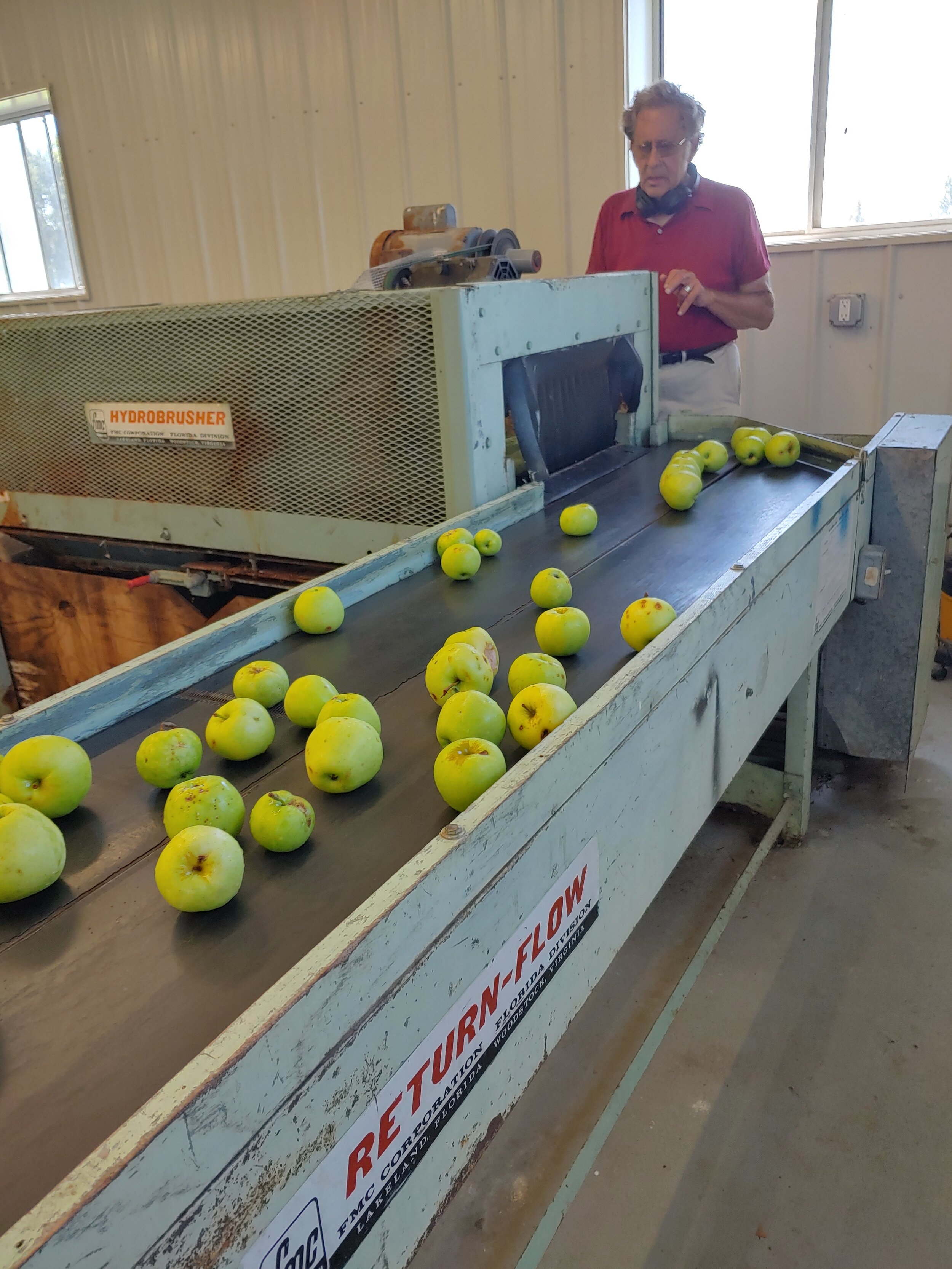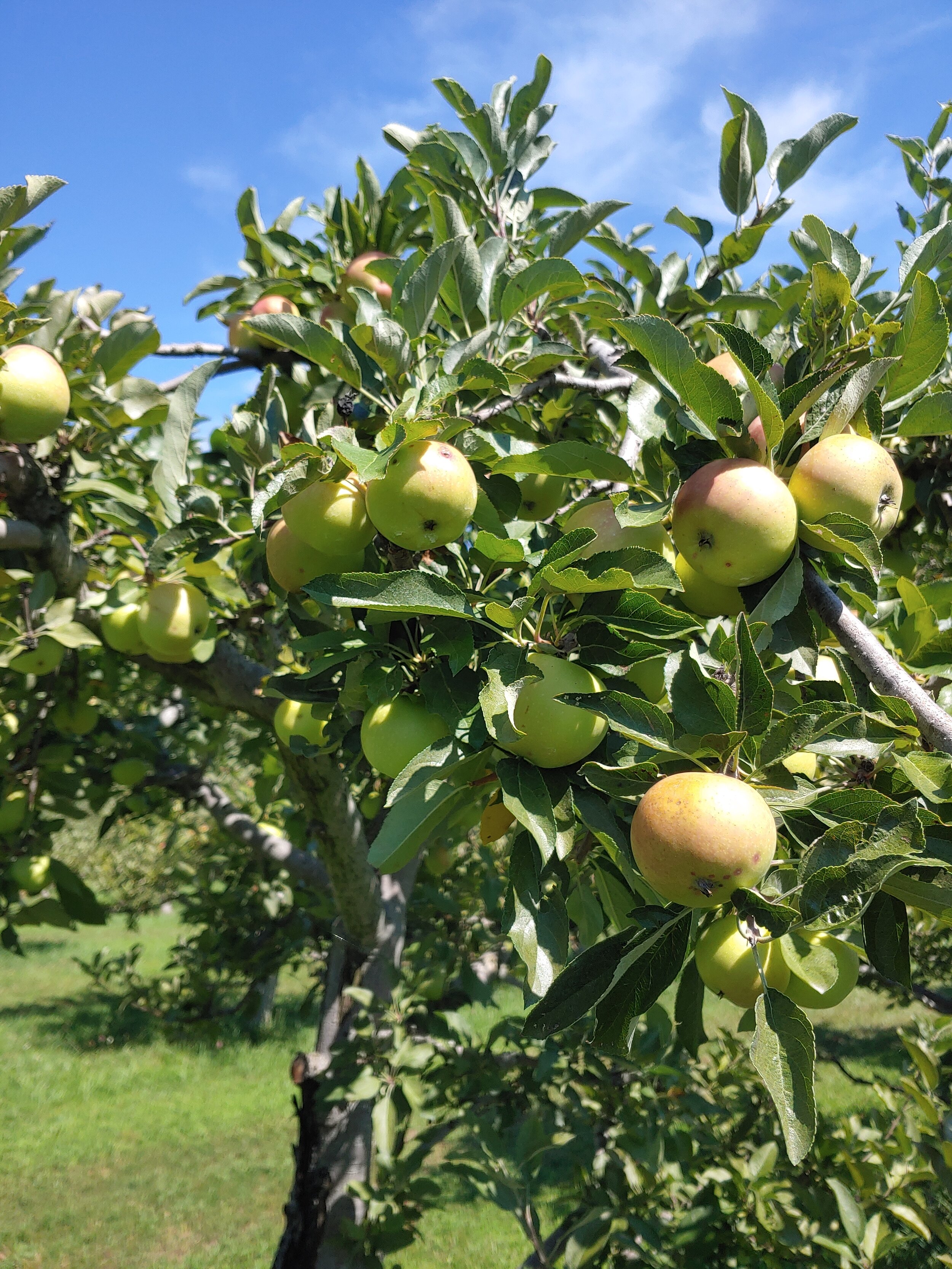It’s the co-op’s vision to support and strengthen community connections with our local producers – so here are their stories! In this Meet Your Producer series, we’ll highlight our neighborhood farmers, ranchers, and producers so you can see and hear what they’re all about.
Beisecker Farms
Tom Beisecker and Andrea Norris
Baldwin City, KS
About the Farm and the Farmers
Beisecker Farms is a small commercial apple orchard located near Baldwin City, Kansas owned and operated by Tom Beisecker and his wife Andrea Norris. Neither Tom or Andrea grew up in a farming family, but when Tom bought the property in the 1970s, he felt he had to do something with the hilly 60 acres and planted his first 24 apple trees.
Andrea ‘wandered in’ to the farm in the late 90s and helped to maintain the orchard. After one particularly long night in 2004 that she spent frantically trying to save all the apples she could from going to waste, hearing the urgent ‘thump’ ‘thump’ of apples hitting the ground, she decided they needed to do something with their abundance.
So they first began selling their produce to Checkers, and for the last 10 years they have been selling here at The Merc Co+op as well.
The orchard has grown to over 300 trees and 13 varieties, though you’ll only find 6 -8 in the store – like Galas (which Andrea says “look like summer”) or Fujis or Jonagolds. They come into season throughout late summer starting with Early Golds in July. The last to be ready is the heirloom Winesaps at the end of September. They also grow a couple of varieties of wine grapes, and they’ve provided grapes to Blue Jacket Crossing Winery for port in the past.
The evolution of their operation has been steady. At first they washed, weighed and stored the apples right inside their home, but as they expanded they made the leap and invested in renovating half of a former horse barn on the property for processing, installing a cooler and purchasing an apple washer and sorter.
Their goal now is to produce enough of a handful of varieties to provide a consistent supply to stores as the fall goes on. Imperfect apples are donated to Just Food, turned into cider, or sent to a friend of the farm to feed his chickens.
All about apples:
The oldest parts of the orchard have the largest trees - in part, because now apple trees are typically grafted with a hearty, dwarf stock: meaning they simply don’t grow as tall and they are more resistant to disease. This makes harvesting the new trees much easier than the older ones.
For apple trees to produce fruit, they must cross-pollinate with other varieties of apples. However, that means planting from seeds will not yield the same tree as produced the fruit – they aren’t true to their breed. To achieve the exact same fruit, you must use a graft or branch from the tree whose fruit you hope to reproduce. This means every Gala apple has one parent tree, every Braeburn is descended from the one, original Braeburn.
Best for baking – Rome apples, which ripen in mid-September.
As with all crops, the success of the trees depends a lot on the climate – some of the first trees Tom planted were McIntosh apples. But they don’t like hot weather, and frequently the fruit will begin to drop when it’s only ¾ ripe.
Find out more about Beisecker Farms


